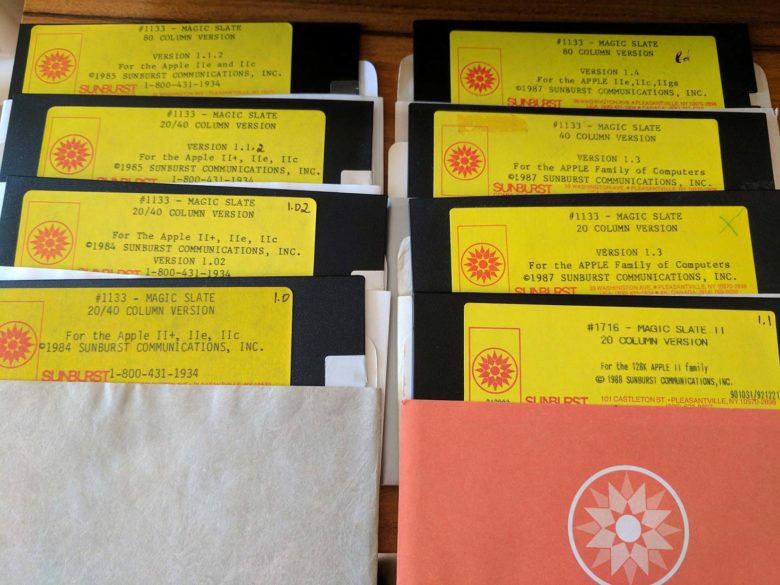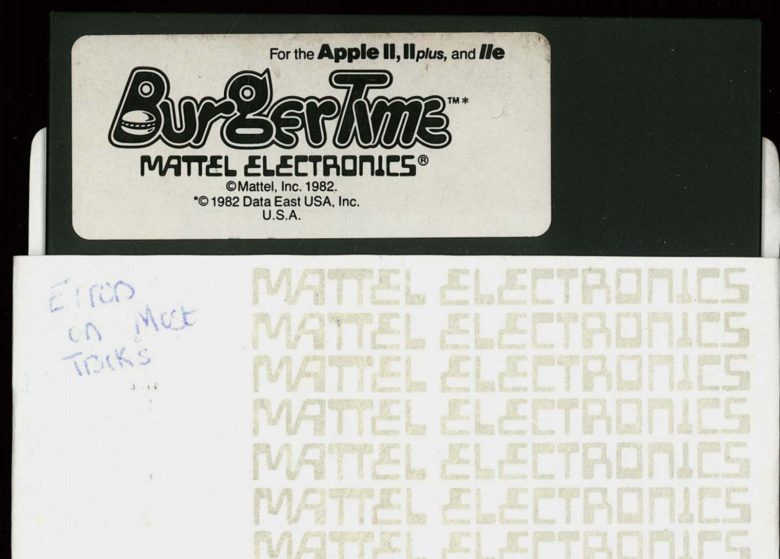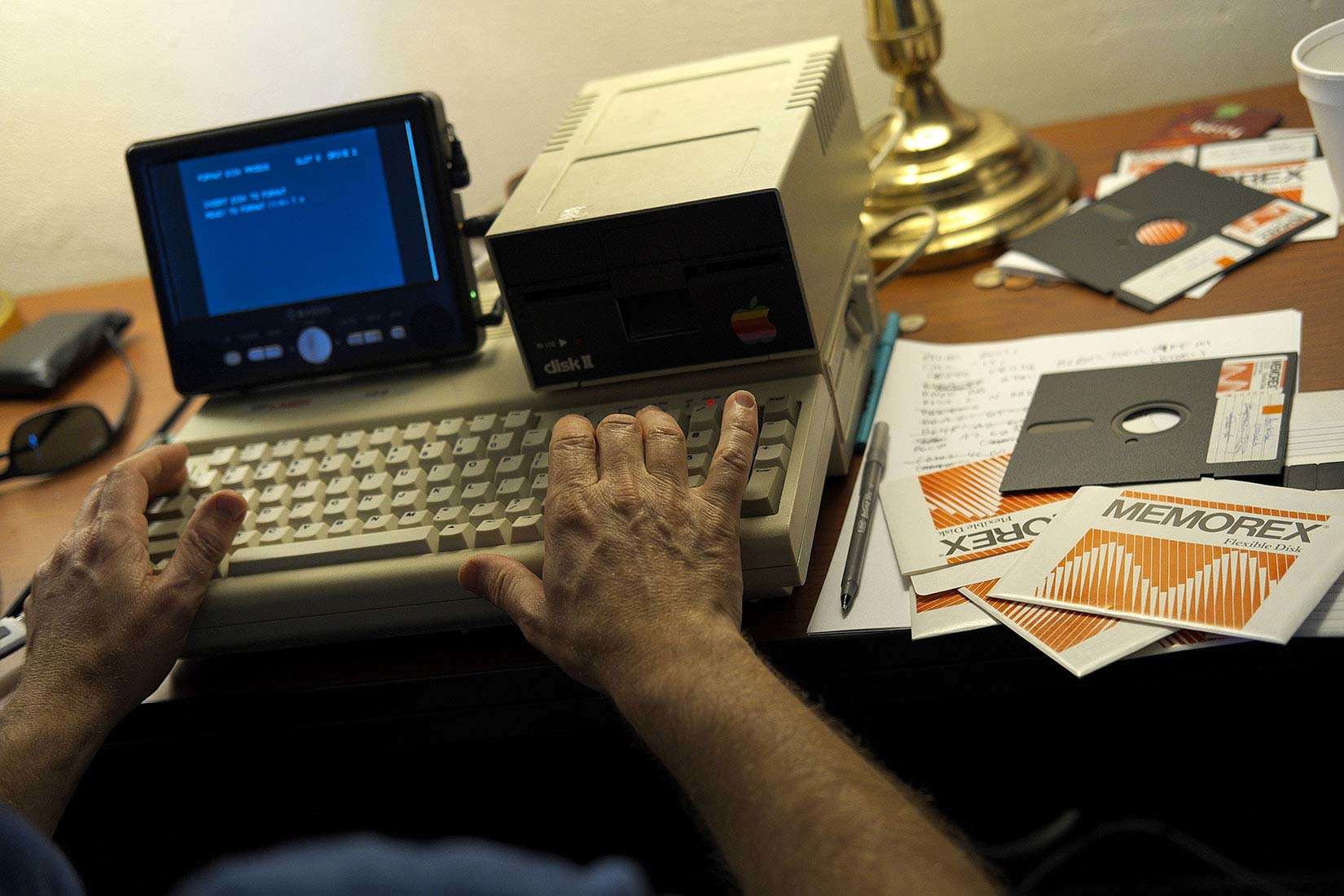Jason Scott is an archivist and the enthusiasm for what he curates is the kind ascribed to 15th-century manuscripts or Jamestown colony artifacts – not software on obsolete floppy disks written for a 40-year-old computer system.
Scott is out to collect any original or copied software disks for the Apple II as if a language is in danger of dying with the people who speak it or possess some record of its existence.
Employed by the San Francisco-based Internet Archive, Scott put out a call earlier this week on Twitter asking for any versions of software used on Apple’s first mass-produced computer.
It doesn’t matter to Scott if it is some ubiquitous game, like Arena of Octos, or obscure productivity software for a company of 12 employees. Scott wants to at least borrow it so that he can copy it for posterity.
“I tell people for a very small amount of effort and an entire realm of human creation can be saved,” Scott told Cult of Mac. “All it requires is pulling data off obsolete media and putting it online. A notable amount of human effort is disappearing and the effort to preserve it is very minimal. We’re not talking about rare silk where there’s like only 12 people in the world who restore it.
“This is Apple II stuff and it can be saved and enjoyed online really quickly.”

Photo: Jason Scott
A computer experience unknown to a generation whose first machine was an iMac, the Apple II enjoys a kind of Holy Grail respect.
It was a machine that gets much of the credit for launching a personal computing revolution and making the brand, and its founders, Steve Jobs and Steve Wozniak, household names. The first Apple II was sold in 1977 and discontinued in 1993.
It also gets credit for launching an industry of consumer software and it’s open-architecture design allowed its most creative and industrious users to code their own software for games, school work or task management in the workplace.
The Apple II’s eventual end could be seen in 1984 with the roll out of the first MacIntosh, but the machine never died. Its fans wouldn’t let them. Users and developers all over the world began to form groups to keep the machines alive, share software knowledge and hardware hacks.
Of all the celebrated Apple products, it is the only one with its own festival, KansasFest, a week-long gathering in Kansas City, Mo., that will meet for its 29th year in July.
From KansasFest and other Apple II communities, software of all kinds gets shared through carefully and lovingly maintained disk drives but also thanks to home-brewed hardware that can rapidly copy the programs.
Scott said boxes of software are already in the mail since his Twitter post. He makes a more lengthy appeal on his blog ASCII by Jason Scott.
Scott recently “imaged” more than 400 disks belonging to 3D0G Knight, a well-known Apple II pirate who began is own preservation efforts in the late 1980s by compiling original and copied programs.
Scott knows he will get a great response from his friends from KansasFest and other Apple II user groups. But he hopes to reach the casual computer user whose parents or other relatives may have once used an Apple II as a teacher or business owner and may have a piece of software not widely circulated.

Photo: Jason Scott
“I just got contacted by a guy in Los Angeles who a radio show in the 90s and reviewed educational software,” Scott said. “Everybody sent him stuff and it’s like a couple thousand pieces of software.”
If you scroll through the Apple II section on the Internet Archive and see a program you found among your things in storage, reach out to Scott anyway. You may have an original when all he has found is a copy or you may have an updated version of a program not in the archive.
Software updates were not news stories like they are today. A company could completely change the program and put it on store shelves in the same packaging.
Scott knows even the rarest of gems will not yield the payout of a rare coin or stamp. It will still be precious.
Your Apple II floppy finds can be sent to Scott at jason@textfiles.com. He will happily return the disks once he has copied them.



